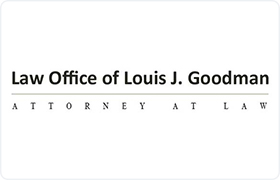Dublin White Collar Crime Lawyer, California
Sponsored Law Firm
-
 x
x

Click For More Info:
-
Louis J Goodman Attorney At Law
1290 B St Suite 307 Hayward, CA 94541» view mapCriminal Defense Law Tough, Experienced, and Professional
If you have been charged with a crime in Alameda County, California, contact The Law Offices of Louis J. Goodman.
510-582-9090
Jo-Anna Marie Nieves
✓ VERIFIEDCriminal, Felony, DUI-DWI, Misdemeanor, White Collar Crime
Armed with considerable experience working for the District Attorney in Sacramento, CA and her voluminous representation of large corporate clients in... (more)
Robert Gary Cummings
✓ VERIFIEDCriminal, DUI-DWI, Felony, White Collar Crime, Misdemeanor
The Law Offices of Robert G. Cummings is devoted to the defense of individuals and entities charged with or facing criminal prosecution. Mr. Cumming... (more)
FREE CONSULTATION
CONTACTFREE CONSULTATION
CONTACTMark Paul Cohen
Civil Rights, White Collar Crime, Personal Injury, Administrative Law, Commercial Real Estate
Status: In Good Standing
Sunny Woan
Trusts, White Collar Crime, Corporate, Credit & Debt
Status: In Good Standing Licensed: 16 Years
Robert J. Beles
White Collar Crime, Administrative Law, Federal Appellate Practice, Immigration, Criminal
Status: In Good Standing
FREE CONSULTATION
CONTACTRichard Alan Tamor
Litigation, Class Action, Federal Appellate Practice, White Collar Crime
Status: In Good Standing Licensed: 29 Years
 Louis J. Goodman Hayward, CA
Louis J. Goodman Hayward, CA Practice AreasExpertise
Practice AreasExpertise


